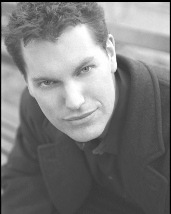Be Innovative, Episodic and Interesting and Get Free Publicity
Posted by Justin Boland on Jun 03, 2008 | 18 Comments
Here’s the Problem
Let me acknowledge right off the bat: I’m not going to hand you the keys because I simply can’t. I will be providing examples of outstanding, low-cost, high-reward promotional concepts, but if you turn around and replicate them, you will fail. Why?
These ideas all worked because they were innovative-brand new angles. This means they’re already taken, and you’ll look like an idiot imitating them.
That said: on the other hand, there really is nothing new under the sun. Much has been written about “viral video” in the wake of Soulja Boy’s dance video, and all he did was take The Macarena, put it into a hip hop context, and use YouTube to promote it. Am I belittling him for this? HELL NO. I think Soulja Boy is hilariously effective and the more people complain about him, the more I appreciate his work. Any discussion about what he means for hip hop is missing the point: he’s making money. Everything he does and says is a calculated move to keep his name floating around. Wether you love him or hate him, you’re still perpetuating his business model by simply talking about him.
Hype Cycles and Work Constants
 Here’s the first, easiest and frankly cheapest method for getting publicity: contradict popular belief and declare something is “dead.” Like TV, or the Music Business, or even Viral Marketing itself. You can see this going on right now in the current issue of Fast Company magazine, where Duncan Watts, an Australian marketing guru, assures the faithful Malcolm Gladwell’s classic The Tipping Point is “Toast.” I’m not about to defend Gladwell’s book, which wound up getting thrown across my room, but his core concepts are self-evidently true.
Here’s the first, easiest and frankly cheapest method for getting publicity: contradict popular belief and declare something is “dead.” Like TV, or the Music Business, or even Viral Marketing itself. You can see this going on right now in the current issue of Fast Company magazine, where Duncan Watts, an Australian marketing guru, assures the faithful Malcolm Gladwell’s classic The Tipping Point is “Toast.” I’m not about to defend Gladwell’s book, which wound up getting thrown across my room, but his core concepts are self-evidently true.
This is a problem Seth Godin notes in Purple Cow: marketers read books about innovative new strategies, then imitate exactly what they read, and then wonder why it didn’t work. It didn’t work because it’s already been done. The point is to take the concepts and apply them to your product, your niche, and the your world. YouTube is currently flooded with cheap knockoff attempts at “viral” dances, jokes and music videos.
The music business is not dead-neither is TV. My biggest, bestest chunk of advice in this article: “experts” will always be talking shit about other experts. Take what’s interesting, take what’s useful and ignore the rest. Duncan Watts has a great critique of Gladwell, and I’m sure Gladwell will have an insightful response to Watts. Hype is a cycle, but work is a constant. Focus on putting in work, and testing what works for you.
Bruce Houghton, who runs the essential resource Hypebot, sums things up perfectly with the title of his commentary on the Watts/Gladwell fight: “Music Marketing Needs To Change…Again.” That’s true today, it was true last year, and it will be true every 2 weeks for the rest of your life. You need to pay close attention to the memetic climate and be ready to adapt faster than your competition. Music marketing needs to change constantly in order to be effective.
Here’s some shining examples to inform and inspire:
Mr. Ozwald and the Yearbook
Big thanks to King Tut for the heads-up on this one…from the Myspace of Mr. Ozwald:
md5-6fcad1a4330bb79f5f1b81959bd91fc5 md5-b6a50da86a3b798a35482188f6c1f973 md5-d7a6d8ec05f6fdd3b84b81574585d864 md5-86c1693510b08f2706831f94899b0f00 md5-7f19db882995fc2779e8876fefedb222
Over the past decade the music biz has been in a downward spiral and continues to follow an out of date model to sell music. With album sales dropping every year, I’ve decided to focus on digital distribution and release new music every month via iTunes and other online retailers. My new album “The Yearbook” will consist of 12 songs, released a month at a time, as I record throughout the year.
Illegal as Fuck = Headlines like Whoa
md5-11902c5096fe3d5022c9290dab73d2f5 md5-ba7e95426bb1692c0422bfd3aebab542 md5-df5ce32cfe7d8055bcc49c82c8b2fc30Planning and Execution
md5-429103669435f33f77f429c53d2c5265 md5-b5444586d8f79f58e30ae7613eef3cca md5-6c6d2b5b866fa34f962c266841de3b39 md5-aca190e6f31009960e95cd8818bf09a5 md5-f05dd30c1d6be7915b59cad58c579db4 md5-1bfccdc1097f971f45790ea66297c330Campfire Media: run by Mike Monello, Gregg Hale and Steve Wax. For an excellent introduction to their methodology, start with this Fast Company article.
md5-2a840e8eb5e7053bf61c0e2db3dd17e2 md5-379b04f4e8cf4d12bfca6fde72912ca7 md5-212b4cd2338bc33ad57280db894b5234 md5-5cf3b35b719ee8f2ecb26f5e583ed3cd md5-d6b4cb511e33b8798cde631bc0582d54 md5-acb6cb565412891e9ce421678c4dfc96Useful Tools: At Back Brain Media, we’re using the Google Calendar application to keep everyone on the same page. We also maintain a private discussion forum which has been invaluable for getting details hashed out, without getting lost in the back and forth of email conversations. (The forum is a module of our CMS-Content Management System-Expression Engine, which I recommend to anyone and everyone.)
2. Leave room for beautiful accidents. Even with all that planning, your plans will collapse. Repeatedly, spectacularly. Be ready to incorporate user feedback, too-if something isn’t working, abandon it ASAP.
Useful Tools: CAN PEOPLE CONTACT YOU? Nothing could be simpler, yet I see people make this too complicated, day after day. World-Around recently got contacted by a label who 1) only accepted messages from their myspace friends, 2) didn’t accept add requests from music pages, and 3) didn’t have any other contact info on their myspace. Privacy is for the rich. Put yourself out there and people will reach out-and nothing is more important in 2008 than authentic human contact.
If you disagree with me, get in touch:
3. Provide multiple and redundant points of entry. Remember that as your campaign gains momentum, you will be increasing your audience every day. All of this new audience will need to get caught up to speed, quickly and painlessly.
Useful Tools: Maintain a consistently updated “About” page that does exactly that. There’s no need for details if you’ve got articles, blog posts, or videos that provide those details. Just give a concise summary with all the relevant links embedded into a single paragraph. Who are you, what do you do, why does it matter. Period.
If you maintain multiple websites and myspace accounts-visit every single one from the perspective of a first-time user. Does it provide all the relevant information? Does it have all of the links that it should? Is it presented clearly? Are you creating a private club for your existing fans, or a welcome center for anyone who stumbles across you?
4. Make it easy to Pass It On. Encourage people to talk about what you’re doing, and make it as easy as possible for them to do so. Provide tools to enable them to help you. Most importantly, embrace and assist any and all unofficial attempts to spread your message, from fan forums to personal pages promoting your music.
Useful Tools: Take a look at what we’re doing for World-Around Records: an easy-to-use promo page that lets anyone integrate our logos and images into their website, myspace or facebook page. We’ve had a lot of people use this, and even thank us for making it available.
Second, we’ve got an example right here on Audible Hype-the “Share This” tool, which incorporates all the social networking links as well as email capability into a single icon. You can check it out right at the bottom of this very article.

A Reading List for Power Weirdos
On my old site, Brainsturbator, I’d usually finish off articles with a reading list. Often, the suggested links weren’t obviously relevant-I was trying to awaken creative thought and get people to draw from multiple disciplines at once. The fact is, most of the “music marketing” discussion that goes on is just an autopsy. Meaning: giving away your music for free is no longer special. Letting your fans choose their own price for your next album is not remarkable anymore. Etc.
I would urge anyone reading this to expand their horizons beyond the echo chamber of “music marketing.” Here’s some steps in the right direction:
Over at the always-interesting Alterati, the always-excellent Wes Unruh has written a great series about DIY marketing for books. The techniques are just as useful for you and me, and all of these articles are quality brainfood:
When a friend of mine went to publish his book, he was faced with two questions. How does one make money from a book? How does one create a market for a book? Actually, he approached the second question like so: How does one create a marketing campaign for little or no money up front and still reach enough of an audience to culminate in “Brand Awareness’?
Part One: The Attention Economy
Part Two: Tellman’s Infoproducts
Information is a Communicable Disease by Kevin Kelly. Kelly is a founder of Wired magazine, and the author of one of my all-time favorite books, Out of Control. I will be taking a much closer look at the work of Duncan Watts, especially his experiments with virtual social networks (again, read the Fast Company article for details). Kevin Kelly was ahead of that particular curve, and this short, instructive essay will give you an overdose of brainfood.
Alternate Reality Games: Design, Development and Implementation. This is a goldmine-the single most valuable and comprehensive resource I found on this subject. If you’re interested in this angle, I cannot recommend this piece enough.
Marketing Sherpa’s Viral Marketing Hall of Fame A list of 12 campaigns to swipe ideas from. Like I’ve already said about a dozen times in this article, it’s more effective to adapt than to abduct. It’s also more ethical, if you’re unfortunate enough to be burdened with ethics.
Global Trends 2007-2036 This truly essential document from the UK Ministry of Defense is their overview of the prevailing trends and inevitable changes they see defining our future, here on planet Earth. This is the larger stage that we’re all living, breathing and yes, marketing upon.
Cognitive Biases Affecting Assessment of Global Risk-this white paper is the best, most concise explanation of “Cognitive Bias” I’ve ever found. Cognitive Biases are the built-in limitations and shortcuts of the human brain. The paper is written within the framework of “assessing global risk” but it also applies to humans planning anything-including and especially a yearlong marketing campaign. This paper is a crucial step towards knowing thyself and I recommend it to all thinking humans.
My Questions to You
Did I just swan dive off the deep end? Was this too far out there to be useful? Are there details I glossed over that you’d like a more detailed explanation of? I would really, really appreciate some feedback on this article. Thanks in advance.

